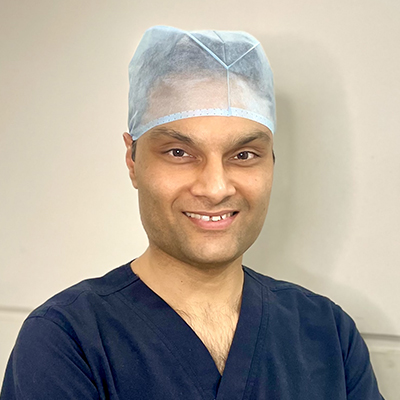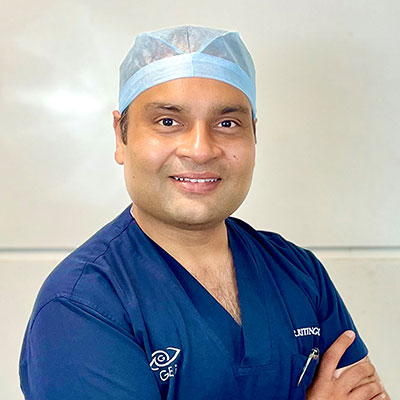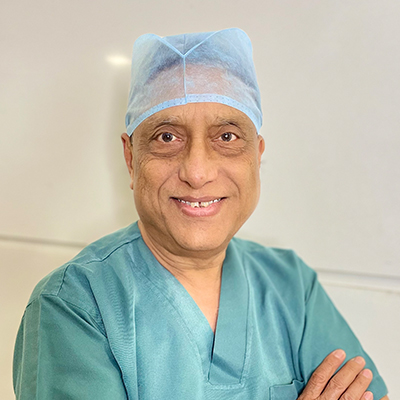Tests Available for Diagnosing Central Serous Chorioretinopathy(CSCR)?
There are several diagnostic tests to evaluate Central Serous Chorioretinopathy (CSCR). These tests can be done from the best hospital, and help confirm the diagnosis and assess the extent and severity of the condition. Some commonly used diagnostic tests for CSCR include:
- Dilated Fundus Examination: This is a comprehensive eye examination where the back of the eye (retina and the choroid) are tested.
- Optical Coherence Tomography (OCT): A non-invasive imaging test that provides cross-sectional retina images. It can help visualize and measure the amount of fluid beneath the retina, detect any structural changes, and monitor the response to treatment.
- Fluorescein Angiography (FA): In this test, a fluorescent dye injects into a vein in the arm, and as the dye circulates in the blood vessels of the retina, photographs click. It helps in identifying any leakage or abnormalities in the blood vessels.
- Indocyanine Green Angiography (ICGA): Examines the choroidal blood vessels more profoundly than the retinal blood vessels. It provides additional information about choroidal abnormalities and blood flow.
- Multifocal Electroretinography (mfERG): This test measures the electrical responses of different areas of the retina to light stimulation.
What Causes Central Serous Chorioretinopathy(CSCR)?
The exact cause of Central Serous Chorioretinopathy (CSCR) is not fully understood. However, several factors, such as Retinal Pigment Epithelium (RPE) Dysfunction, hormonal changes, blood abnormalities, and genetic predisposition, are associated with its development.
Complications of Central serous chorioretinopathy (CSCR)
- Retinal Detachment: Fluid accumulation for a longer duration can cause the retina to detach from the underlying tissue. This condition requires immediate medical attention and can result in permanent vision loss if not treated promptly.
- Choroidal Neovascularization (CNV): CNV is an abnormal growth of blood vessels in the choroid layer of the eye, which can occur as a complication of CSCR. These new blood vessels can leak fluid or bleed, leading to further vision impairment.
- Persistent Retinal Pigment Epitheliopathy (RPE) Changes: Central serous chorioretinopathy causes a change in the retinal pigment epithelium (RPE), which supports the retina's health.
Prevention from CSCR
Here are specific preventive measures may help reduce the risk of developing or exacerbating the condition:
- Regular Eye Checkups
- Stress Management
- Lifestyle Modifications
- Limiting Corticosteroid Usage
FAQs for CSCR
At Goyal Eye, we have some of the best eye specialists & surgeons
Meet our Team

Dr. Anshul Goyal CEO Cataract and Retina Surgeon

Dr. Ritin Goyal Director Cataract and Cornea Surgeon

Dr. Pawan Goyal Chairman Cataract and LASIK Surgeon

Goyal Eye Institute began with a humble beginning in 1989, and has now progressed to provide personalized and inclusive care for entre range of Ophthalmic specialties.
The Centre has highly competent and experienced Ophthalmic Super Specialists to provide best quality care under one roof. Our Specialists form various clinics work closely as a team to provide comprehensive.
Eye Issues
- Red Eyes
- Dry Eyes
- Blurry Vision
- Keratoconus
- Diabetic Retinopathy
- Strabismus
- Retinal Vein Occlusion
- Retina Pigmentosa
- Retinal Tear
- Floaters
- Vitreous Haemorrhage (VH)
- Central Retinal Artery Occlusion (CRAO)
- Central Serous Chorioretinopathy (CSCR)
- Cystoid Macular Edema (CME)
- Retinopathy of Prematurity (ROP)
- Age-Related Macular Degeneration (ARMD)
© Copyright Goyal Eye, All Rights Reserved - 2026